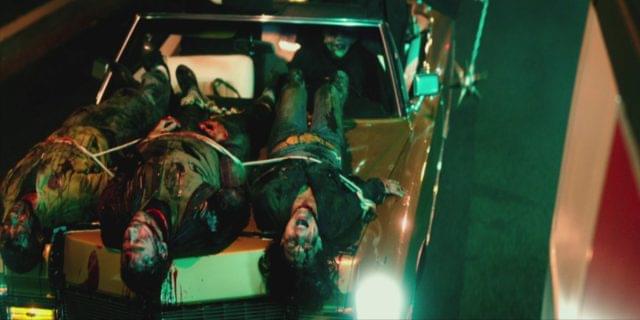
As you know, the Purge is an annual event during which all crime is legal for 12 hours, enabling people to burn off some steam so they can be law-abiding citizens the other 364.5 days of the year. As of this writing, the Purge is fictional, and the logic behind it doesn’t make sense. But check back in 2017. Trickle-down economics didn’t make sense, either, and we tried that for a while.
“The Purge: Election Year,” the third film in writer-director James DeMonaco’s unexpectedly hardy pro-violence franchise, finds the premise running out of steam even as DeMonaco brings up (and inadequately addresses) new ideas. This time, Sen. Charlotte “Charlie” Roan (Elizabeth Mitchell) is running for president on an anti-Purge platform, rallying voters who’ve realized the Purge is just a way for elitists to get poor people and minorities to kill each other. The New Founding Fathers, the overwhelmingly caucasian party that started the Purge and currently controls the government, seeks to eliminate Roan by rescinding the Purge’s protections for high-ranking elected officials and hiring a squad of white supremacists to assassinate her on Purge night, which falls two months before the election.
You know what that means: Leo Barnes to the rescue! Wait, you don’t know who that is yet. He’s the tough ex-military guy played by Frank Grillo in “The Purge: Anarchy,” where he was just called the Sergeant. Now he has a name and is Sen. Roan’s head of security, taking her on the run after her home is inevitably breached. Meanwhile, in what might be a different city or a different movie altogether, deli owner Joe (Mykelti Williamson) is guarding his business against Purgers with the help of loyal Mexican employee Marcos (Joseph Julian Soria) — “Every day in Juarez is like the Purge,” he says soberly — and Laney (Betty Gabriel), a Purge avenger who drives around helping the injured. The threads merge at around the film’s halfway point, when Joe and Marcos spontaneously appear to save Leo and Roan from attackers, and they all join forces.
DeMonaco’s new angle is to examine how white nationalism intersects with the twisted interpretation of Christianity that allows for it. Roan’s political opponent, Edwidge Owens (Kyle Secor), is a pastor who endorses the Purge’s cleansing qualities, especially when they are applied to addicts, poor people, and other sinners. But DeMonaco does what he always done with this franchise’s sociopolitical commentary: bring it up, get us interested in exploring it, and then fail to do so. It’s like he’s hesitant to let his summer slaughterfests dig past the surface, lest they be accused of something damning like smartness. But without anything to chew on, and with barely enough story to fill an hour (let alone 105 minutes), “Election Year” becomes tedious and dispirited, much like the actual election year.
C+ (1 hr., 45 min.; )





